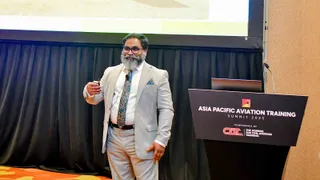US Air Traffic is 3,000 Controllers Short
Contact Our Team
For more information about how Halldale can add value to your marketing and promotional campaigns or to discuss event exhibitor and sponsorship opportunities, contact our team to find out more
The Americas -
holly.foster@halldale.com
Rest of World -
jeremy@halldale.com

Transportation Secretary Pete Buttigieg argues that most delays travelers experience are not the cause of FAA air traffic controller short-staffing. “Controller availability is not the cause of most cancellations and delays that we see,” he insisted.
But former United Airlines CEO Oscar Munoz disagrees. “We have the most outdated and I would say obsolete system in almost the entire world. There are 60 countries at last count that have better and newer updated systems to control air traffic.”
Munoz added that, when there is any kind of disruption in the US system, “we just don’t let planes in the air. Everything gets slowed down and pushed back.”
Acting FAA Administrator Billy Nolen told Congress in a letter the agency hired 1,026 controllers last year, just shy of its targets, The FAA also experienced more controllers leaving the job last year than it had planned, and is further short-staffed because the coronavirus pandemic “has resulted in delayed certification for most existing developmental controllers.”
The ATC workforce is currently about 11,500 controllers, but Buttigieg estimated “the optimal number is closer to about 14,500,” ie, one in five controller positions is vacant.
Will it get better? “We have thousands of controllers in training right now but also a number who are eligible to retire,” Buttigieg said. Nolen has said the agency plans to hire 3,300 in the next two years.
The US is not the only country struggling with personnel issues. In a recent survey by the European Member Associations of the International Federation of Air Traffic Controllers' Associations (IFATCA), most EU nations have shortfalls.
Ireland reported, “The staff situation limits the functioning of services; training is minimal or cancelled, and granting leave is difficult in the tower and approach units.”
Germany, Italy and several others used similar language: “The staff situation barely allows for the effective functioning of services, training and leave in tower, approach and area control.”
The expected 15% traffic increase for summer 2023, combined with the ongoing war in Ukraine and the related airspace restrictions, will very likely challenge the whole European airspace system over the coming months, IFATCA stated.
“Air Traffic Controllers will need to be involved in addressing the challenges and in finding solutions to allow them to ensure European air traffic can continue in the safest possible circumstances”, noted IFATCA EVP Europe, Frédéric Deleau.


